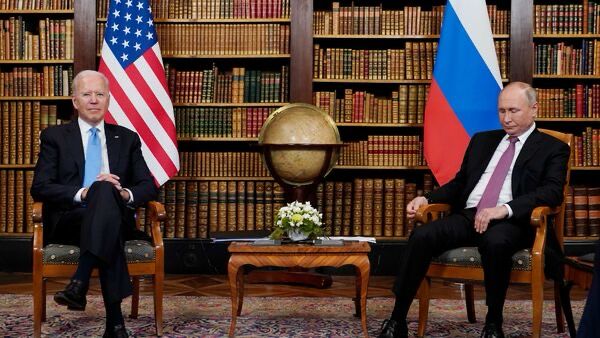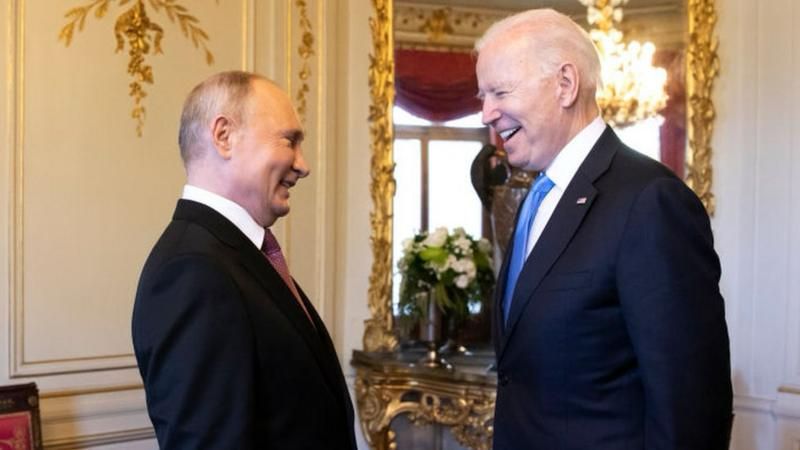In a geopolitical twist, Russian President Vladimir Putin has publicly expressed his preference for Joe Biden over Donald Trump in the upcoming U.S. presidential election. This unexpected endorsement has opened a window into the complex web of international relations, raising questions about the motivations behind Putin’s statement and its potential implications.
Table of Contents
Biden’s Predictability and Putin’s Calculated Move
Putin’s endorsement of Biden hinges on the perception of the U.S. president as a more “experienced, predictable, an old-school politician.” This characterization, coming from the leader of a country often viewed as a U.S. adversary, adds an intriguing layer to the ongoing political discourse. Putin’s emphasis on predictability suggests a strategic calculus, as stability in bilateral relations may align with Russia’s interests.
Age-Related Concerns: Putin’s Dismissal and Counterargument
Putin’s dismissal of concerns about Biden’s age and mental acuity is a notable aspect of his endorsement. By downplaying age-related criticisms as part of a “vicious” U.S. election campaign, Putin aims to challenge the narrative surrounding Biden’s competence. Referencing their 2021 meeting in Geneva, Putin sought to normalize the issue by highlighting a minor incident where both leaders bumped their heads, deflecting attention from broader health-related concerns.
U.S.-Russia Relations: A Nuanced Perspective
While expressing a preference for Biden, Putin did not shy away from criticizing the current U.S. administration’s foreign policy. Calling it “extremely harmful and wrong,” Putin’s nuanced stance acknowledges Biden’s attributes while signaling dissatisfaction with broader U.S. strategies. This underscores the multifaceted nature of international relations, where leaders navigate a delicate balance of cooperation and contention.
Tensions Over Military Aid to Ukraine: Contextualizing Putin’s Intervention

Putin’s endorsement comes amid escalating tensions between Democrats and Republicans over increased military aid to Ukraine. Biden’s accusations against Trump, accusing him of “bowing down to a Russian dictator,” have intensified the geopolitical backdrop. Putin’s intervention adds a diplomatic layer to the complex dynamics surrounding Ukraine, showcasing Russia’s keen interest in the outcome of the U.S. election.
U.S. Role in Russia-Ukraine Conflict: Funding Challenges and Republican Opposition
The U.S. has played a pivotal role in providing military and financial aid to Ukraine since Russia’s full-scale invasion. However, the Biden administration faces challenges in securing congressional support for a new $60 billion round of funding. Republican hostility, led by Trump, further complicates the process. This highlights the intricacies of domestic politics influencing international relations.
NATO Dynamics: Putin’s Critique and Trump’s Controversial Stance
Putin’s suggestion that Trump was right to cast doubt on the future of NATO adds another layer to the endorsement. This aligns with Trump’s past controversial statements, including implying that he might encourage Russia to attack NATO countries deemed insufficiently contributing. Putin’s comments underscore the divergence of perspectives on key geopolitical alliances, hinting at potential shifts in global power dynamics.
Unraveling the Motivations: Putin’s Strategic Calculations

Analyzing Putin’s endorsement requires a deeper understanding of Russia’s strategic goals. By expressing a preference for Biden’s predictability, Putin may be signaling a preference for stability in U.S.-Russia relations. However, his critique of U.S. foreign policy indicates that cooperation does not equate to complete alignment of interests. Putin’s move could be seen as an attempt to influence the discourse surrounding Russia and shape the narrative in a way that serves Russian interests.
Implications for the U.S. Election: A Foreign-Driven Twist
The direct involvement of a foreign leader in expressing a preference for a U.S. presidential candidate introduces an unprecedented element into the election narrative. It raises questions about potential implications for domestic politics and public opinion. While foreign endorsements may not sway the American electorate decisively, they add a layer of complexity to an already intricate political landscape.
In conclusion
Putin’s endorsement of Biden has unveiled a complex interplay of geopolitics, stability considerations, and strategic calculations. As the U.S. presidential election unfolds, the impact of this foreign-driven twist on voter perceptions and international relations remains a subject of keen observation. The intricate dance between global leaders continues to shape the contours of a rapidly evolving geopolitical landscape.



